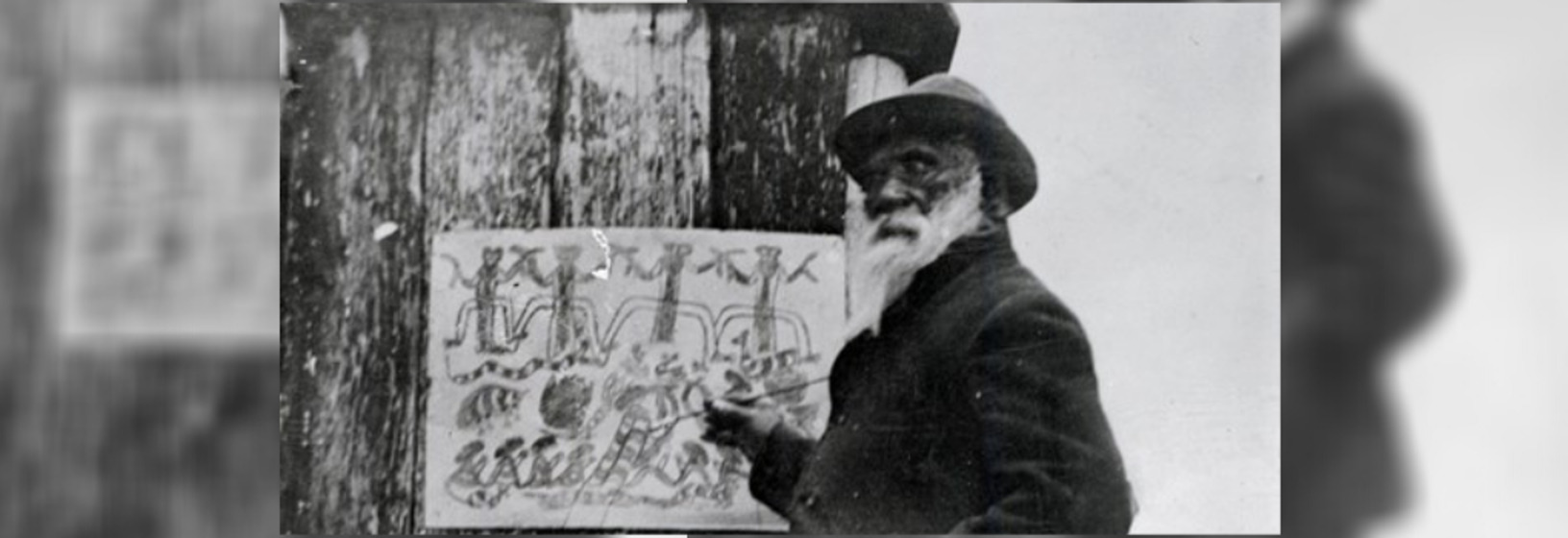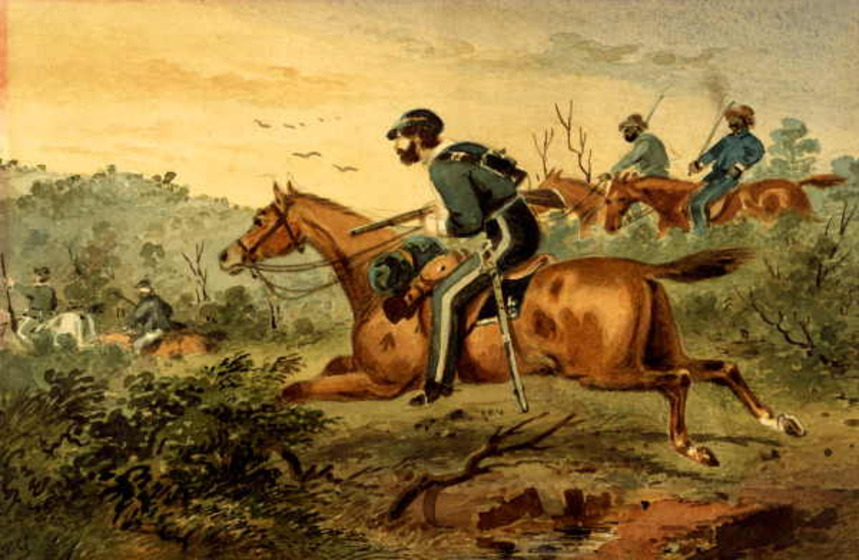Aboriginal and Torres Strait Islander people should be aware that this page may contain culturally sensitive information, and/or contain images and voices of people who have died
See story for image details
The reuse of this media requires cultural approval
Reuse this media
Can you reuse this media without permission? No (with exceptions, see below)
Conditions of use
All rights reserved
This media item is licensed under "All rights reserved". You cannot share (i.e. copy, distribute, transmit) or rework (i.e. alter, transform, build upon) this item, or use it for commercial purposes without the permission of the copyright owner. However, an exception can be made if your intended use meets the "fair dealing" criteria. Uses that meet this criteria include research or study; criticism or review; parody or satire; reporting news; enabling a person with a disability to access material; or professional advice by a lawyer, patent attorney, or trademark attorney.
Attribution
Please acknowledge the item’s source, creator and title (where known)
The reuse of this media requires cultural approval
Painting - Watercolour, pencil, ink and gum arabic, S.T. Gill, 'Troopers After Bushrangers', 1871, State Library Victoria
The reuse of this image requires cultural approval
Reuse this media
Can you reuse this media without permission? No (with exceptions, see below)
Conditions of use
All rights reserved
This media item is licensed under "All rights reserved". You cannot share (i.e. copy, distribute, transmit) or rework (i.e. alter, transform, build upon) this item, or use it for commercial purposes without the permission of the copyright owner. However, an exception can be made if your intended use meets the "fair dealing" criteria. Uses that meet this criteria include research or study; criticism or review; parody or satire; reporting news; enabling a person with a disability to access material; or professional advice by a lawyer, patent attorney, or trademark attorney.
Attribution
Please acknowledge the item’s source, creator and title (where known)
© Digital reproduction copyright of State Library Victoria
The reuse of this image requires cultural approval
In the early 1840s, when Barak was 19 years old, the influential leader Billibellary (Barak’s uncle) negotiated a recruitment deal that saw 22 clan elders and heirs join the newly formed Native Police Corps. Barak was among them and on joining the Corps, and it was during this time that he changed his first name from Beruk to William.
Uniformed and armed, the Native Troopers undertook military training and policed the region on horseback, dealing out rough justice to Koorie and non-Koorie alike. During this time, Barak also became known as a skilled tracker. Many years after he hung up his Native Police uniform, he was engaged regularly to track missing children and fugitives from the law – including notorious bush outlaw Ned Kelly and his gang.
Barak was fond of recounting the time he tracked down the Kelly gang hiding in thick scrub, and told the white police “robbers in there – go and get them.” But the white police told Barak to go in first, saying they’d follow behind. Barak replied “I have no gun. I track. You are cowards.” The white police then deemed it wise to send for reinforcements.
Painting - Oil on canvas, John Wesley Burtt, 'John Batman Attempts to Enter Treaty with Kulin at Merri Creek' , c. 1875, State Library Victoria
The reuse of this image requires cultural approval
Reuse this media
Can you reuse this media without permission? No (with exceptions, see below)
Conditions of use
All rights reserved
This media item is licensed under "All rights reserved". You cannot share (i.e. copy, distribute, transmit) or rework (i.e. alter, transform, build upon) this item, or use it for commercial purposes without the permission of the copyright owner. However, an exception can be made if your intended use meets the "fair dealing" criteria. Uses that meet this criteria include research or study; criticism or review; parody or satire; reporting news; enabling a person with a disability to access material; or professional advice by a lawyer, patent attorney, or trademark attorney.
Attribution
Please acknowledge the item’s source, creator and title (where known)
© Digital reproduction copyright of State Library Victoria
The reuse of this image requires cultural approval
When farmer John Batman first rowed down the Yarra River (the Birrarung), he was excited to see acres of lush green land – ideally suited, he thought, to farming.
In 1835, at the age of 12 years, Barak witnessed the first and only bid for a 'treaty' between Aboriginal and white Australians, when eight Koorie clan leaders met with Batman on the banks of Merri Creek. Batman had brought along several 'Sydney blacks' to help with negotiations, but regional differences meant the language barrier remained, and the conversation was conducted largely in mime.
The resultant misunderstandings had dire consequences for the Kulin peoples of the Narrm (Melbourne) region. To Batman, his 'treaty' was a land purchase contract – whereas to the traditional owners, it was similar to a temporary permit visa. Batman assumed he had gained 360,000 hectares of land in exchange for blankets, beads, knives and mirrors - however, the original inhabitants thought these items were gifts traditionally exchanged as part of the tanderum hospitality ceremony held when newcomers enter another people’s land.
After this historic misunderstanding, Batman inaccurately declared himself “the greatest landowner in the world.” As the expansion of farming quickly forced the Kulin peoples from their traditional grounds, the population was ravaged by introduced diseases and starvation.
Painting - Oil on board, Florence Ada Fuller, 'Barak' , 1885, State Library Victoria
The reuse of this image requires cultural approval
Reuse this media
Can you reuse this media without permission? No (with exceptions, see below)
Conditions of use
All rights reserved
This media item is licensed under "All rights reserved". You cannot share (i.e. copy, distribute, transmit) or rework (i.e. alter, transform, build upon) this item, or use it for commercial purposes without the permission of the copyright owner. However, an exception can be made if your intended use meets the "fair dealing" criteria. Uses that meet this criteria include research or study; criticism or review; parody or satire; reporting news; enabling a person with a disability to access material; or professional advice by a lawyer, patent attorney, or trademark attorney.
Attribution
Please acknowledge the item’s source, creator and title (where known)
© Digital reproduction copyright of State Library Victoria
The reuse of this image requires cultural approval
A striking portrait of William Barak painted by Florence Ada Fuller.
Photograph - Monochrome, Talma & Co, 'Barak preparing his corroboree painting for the Governor Sir Henry Loch', c. 1895, Koorie Heritage Trust
The reuse of this image requires cultural approval
Reuse this media
Can you reuse this media without permission? No (with exceptions, see below)
Conditions of use
All rights reserved
This media item is licensed under "All rights reserved". You cannot share (i.e. copy, distribute, transmit) or rework (i.e. alter, transform, build upon) this item, or use it for commercial purposes without the permission of the copyright owner. However, an exception can be made if your intended use meets the "fair dealing" criteria. Uses that meet this criteria include research or study; criticism or review; parody or satire; reporting news; enabling a person with a disability to access material; or professional advice by a lawyer, patent attorney, or trademark attorney.
Attribution
Please acknowledge the item’s source, creator and title (where known)
© Digital reproduction copyright of Koorie Heritage Trust (Gnokan Danna Murra Kor-ki)
The reuse of this image requires cultural approval
In the years following white settlement, Barak played a major role in advocating for Aboriginal rights and protecting his people’s culture.
He painted artworks depicting traditional ceremonies, welcomed non-Koorie visitors to the Coranderrk reserve to learn about Aboriginal culture, and visited Government House to demonstrate boomerang throwing and fire-making.
He also struck up friendships, working relationships and diplomatic links with a number of influential non-Koories including: Governor Sir Henry Loch; anthropologist Alfred Howitt; Swiss Consul Baron Guillaume de Pury; lay preacher John Green and settler Anne Bonn. The red-haired Scotswoman and her station-owner husband met Barak while he was doing itinerant farm work - Anne later proved a loyal friend and supporter in his struggles to protect Coranderrk from closure.
Sharing his expansive knowledge of culture, land and history, Barak acted as a primary source when Howitt compiled his 1903 book The Native Tribes of South East Australia. The two men remained in touch for many years.
Photograph - Cabinet card, 'William Barak', State Library Victoria
The reuse of this image requires cultural approval
Reuse this media
Can you reuse this media without permission? No (with exceptions, see below)
Conditions of use
All rights reserved
This media item is licensed under "All rights reserved". You cannot share (i.e. copy, distribute, transmit) or rework (i.e. alter, transform, build upon) this item, or use it for commercial purposes without the permission of the copyright owner. However, an exception can be made if your intended use meets the "fair dealing" criteria. Uses that meet this criteria include research or study; criticism or review; parody or satire; reporting news; enabling a person with a disability to access material; or professional advice by a lawyer, patent attorney, or trademark attorney.
Attribution
Please acknowledge the item’s source, creator and title (where known)
© Digital reproduction copyright of State Library Victoria
The reuse of this image requires cultural approval
A photograph of William Barak (Berac) who died in 1903.









